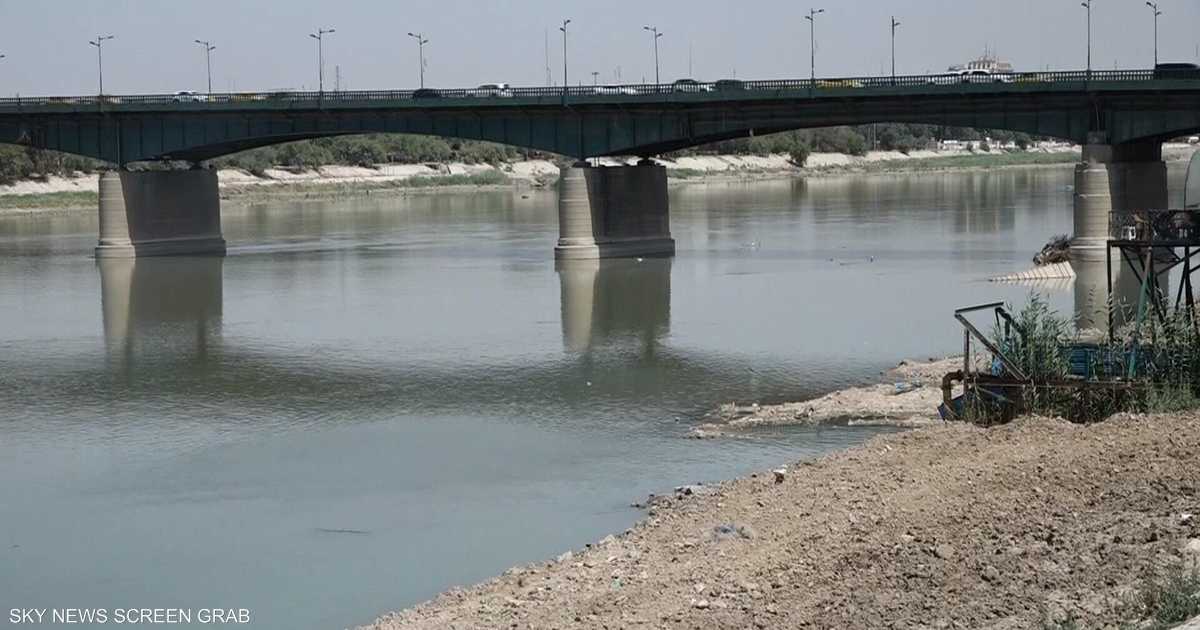In the most recent of these warnings, Jassim Al-Falahi, Technical Undersecretary of the Iraqi Ministry of Environment, revealed in statements to the Iraqi official channel, in which he confirmed that Iraq produces more than 6 million cubic meters of wastewater per day, which is a very high rate that does not fit international standards.
He revealed that the ministry is facing a real problem in treating this water, due to the aging of the infrastructure for the treatment process.
Scarce and polluted water
Experts warn that the existence of a scarcity of water, along with its pollution, will result in disasters that amount to threatening the population of entire regions with thirst, in addition to the negative environmental and health effects.
The Iraqi academic and expert in water strategies and policies, Dr. Ramadan Hamza, said in an interview with Sky News Arabia:
- About 6 million cubic meters of wastewater are produced daily in Iraq, and this huge amount causes serious environmental pollution, as many Iraqi governorates face great difficulties in treating this water adequately, and for this reason, the problem of wastewater treatment is a real challenge in Iraq.
- Wastewater treatment processes depend on various technologies such as sedimentation, sterilization, bio-purification, etc. However, the stations and facilities concerned with wastewater treatment in Iraq suffer from a lack of equipment, appropriate technologies, adequate financing, and administrative and financial corruption.
Wastewater hazards
- The Iraqi academic adds that as a result, most of the wastewater is discharged into rivers and public sewers without adequate treatment, and this leads to pollution of ground and surface water, and poses a threat to public health and the environment, especially wastewater from hospitals and oil refineries and factories.
- In addition, the use of untreated wastewater to irrigate agricultural crops increases the risks of disease transmission and crop contamination.
- Failure to properly treat wastewater in a scientific manner can lead to pollution of groundwater, rivers, lakes, and agricultural soils, and this negatively affects public health, the environment, and the biological balance.
- The accumulation of wastewater causes health problems and crises, unpleasant odors, and threatens to spread infectious and deadly diseases such as cholera, for example.
Solutions and treatments
- To address this problem, Hamza said, government agencies must improve the aging wastewater treatment infrastructure and provide adequate funding for related projects.
- The government should work in cooperation with international institutions and donors to provide modern technology, training and strengthening local wastewater treatment capacities.
- Consumers should also be made aware of the importance of sustainable dealing with water resources, as this resource is the third source of water in Iraq after surface water and groundwater. After treatment, wastewater can be used for irrigation purposes, or recharge aquifers.
- Thus, wastewater treatment should be a national priority, as water sustainability is one of the most important mechanisms for achieving development and preserving the environment and public health.
#million #cubic #meters #day.. #Sewage #pollutes #waters #Iraq









/cloudfront-eu-central-1.images.arcpublishing.com/prisa/FGL53EGI3NAKVA74INFNZLQC5I.jpeg)